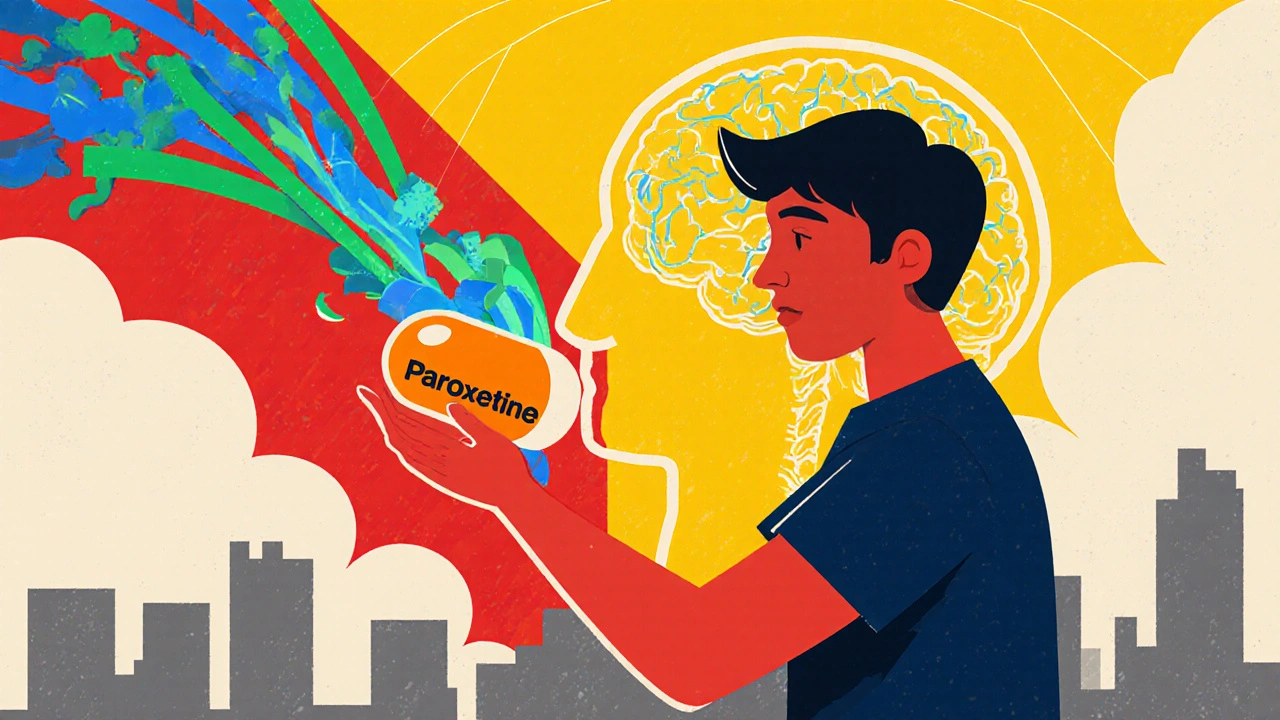Antidepressant Side Effects – What to Expect and How to Manage
When talking about antidepressant side effects, the unwanted physical or mental reactions that can happen while treating depression. Also known as medication side effects, they range from mild jitters to serious health concerns. Understanding these reactions helps you stay in control of your treatment.
One of the biggest groups you’ll hear about is SSRIs, selective serotonin reuptake inhibitors that increase serotonin levels in the brain. They’re popular because they’re effective and generally safe, but they bring a specific set of side effects. Antidepressant side effects like nausea, insomnia, or dry mouth often start early and fade as your body adjusts.
Another common class is MAO inhibitors, older drugs that block monoamine oxidase, an enzyme that breaks down neurotransmitters. Because they interact with many foods and other meds, the risk of dangerous reactions, especially hypertensive crises, is higher. Knowing the diet restrictions can prevent a scary emergency.
Side effects aren’t just about the gut or sleep; they hit the bedroom too. Sexual dysfunction, reduced libido, delayed ejaculation, or difficulty reaching orgasm, shows up in up to 60% of patients on SSRIs. It can feel like a double blow—your mood lifts but intimacy suffers. Talking openly with your doctor opens the door to dose tweaks or alternative meds that spare your sex life.
One of the scariest, though rare, reactions is serotonin syndrome, a potentially life‑threatening condition caused by excess serotonin. Symptoms include high fever, muscle rigidity, and rapid heart rate. The syndrome often appears when you combine multiple serotonergic agents—say, an SSRI with a migraine medication. Early detection and stopping the offending drugs usually resolves the issue.
Withdrawal, or discontinuation syndrome, is another piece of the puzzle. Even a short taper can trigger dizziness, electric‑shock sensations, or anxiety spikes. The body has adapted to the drug’s presence, so a slow, doctor‑guided taper is key. Remember, it’s not you “faking” symptoms; it’s a physiological response that needs proper handling.
Weight changes are a subtle but common side effect. Some SSRIs can cause modest weight gain, while others may suppress appetite. The mechanism isn’t fully clear, but tracking food intake and staying active helps keep the scale from sneaking up on you. If weight becomes a big concern, switching to a different antidepressant often steadies the situation.
Beyond the drug itself, other factors shape how side effects appear. Age, gender, genetics, and existing health conditions all play a role. For example, older adults may experience more falls due to dizziness, while teenagers might notice heightened agitation. Tailoring treatment to the individual reduces unwanted reactions.
Managing side effects isn’t a solo mission—your healthcare team is a partner. Regular check‑ins let you report new symptoms early. Simple adjustments, like taking the pill with food, switching to an extended‑release formulation, or adding a low‑dose adjunct medication, can make a big difference.
When side effects feel overwhelming, consider non‑pharmacological supports. Cognitive‑behavioral therapy, exercise, and mindfulness can boost mood and sometimes let you lower the dose. Combining approaches often yields the best outcomes while keeping side effects in check.
Putting It All Together
In short, antidepressant side effects cover a wide spectrum—from nausea and insomnia to sexual issues and rare emergencies like serotonin syndrome. Understanding the drug class, recognizing warning signs, and staying proactive with your provider are the three pillars of safe treatment. Below you’ll find a curated collection of articles that dive deeper into each of these topics, offering practical tips, real‑world examples, and the latest research to help you navigate your journey.
How Paroxetine Affects Mood and Emotional Regulation
Explore how paroxetine works, its effects on mood and emotional regulation, common side effects, and tips for managing them, plus a quick SSRI comparison.
Read more
